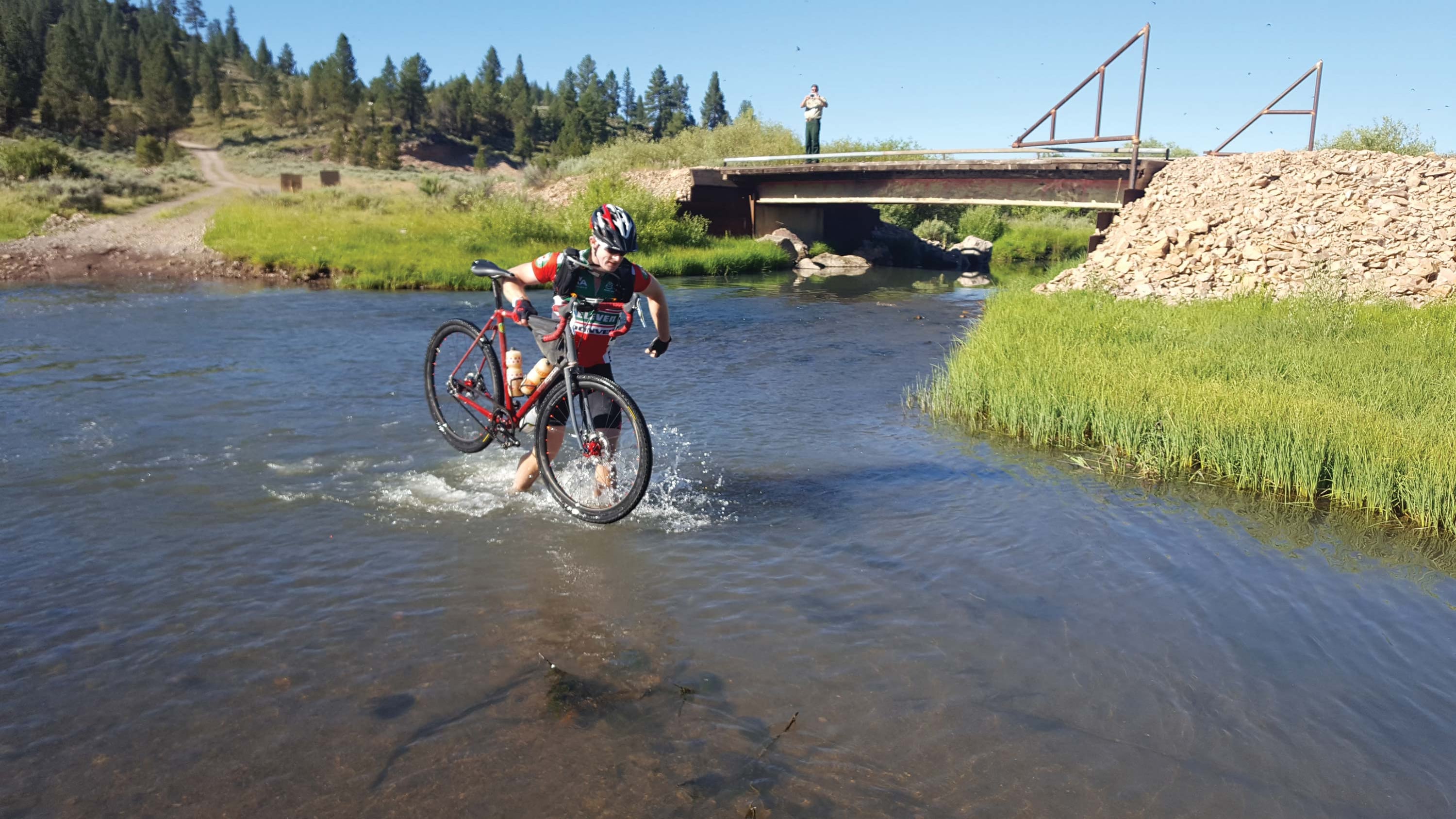Last year, fewer than half the riders in the Skull 120 gravel race made it to the finish line.
Starting and ending in the remote Eastern Oregon town of Burns, the Skull 120 bills itself as "America's gnarliest gravel race." On more than 120 miles of old Bureau of Land Management and U.S. Forest Service roads, bikers cross multiple rivers and cattle guards, climb 10,000 feet in elevation, and traverse at least 10 different soil types.
The first half of this year's route includes a climb up Snow Mountain. The road to the summit ends in a steep, 1,000-foot elevation gain that lasts for 2 miles straight, and the winding plummet down the mountain is just as daunting as the climb up.

Cameron Sanders, an event organizer and former Forest Service employee, acknowledges that calling the Skull 120 the most difficult bike race in the nation is bold. But he stands by it.
"Burns is just too far removed from anywhere. And there are so many good races going on in the Pacific Northwest and throughout the country," Sanders says. "Why would you go out of your way to go to Burns unless it was something absolutely extravagant?"
Sanders is an avid cyclist himself, as are all the Forest Service and BLM staff who put the route together. He says the Skull 120 isn't just a venue for "crazy masochistic cyclists," it's part of a larger effort by a coalition called Adventure Harney, which includes public land agencies, state parks and the Harney County Chamber of Commerce.
The goal of Adventure Harney, Sanders says, is to "do some rebranding and promoting that there's a lot more going on in Harney County than just the unrest you see in the news." (He's referring to the 2016 armed occupation of the Malheur National Wildlife Refuge.)
Richard Roy, a district manager for the Burns BLM office and an event organizer, adds: "The whole idea of the event was about getting people out to enjoy public land. There's plenty of land, and you can spend a day riding and see less than 10 people."

This will be the race's third anniversary. Its first year, 20 people signed up. Last year, there were 130. Almost all of those riders are members of professional teams. Sanders expects the race to be at its capacity of 200 this year, with riders coming from Portland, Seattle, San Francisco and the Midwest to cross the grueling route off their bucket lists.
"Unanimously, everybody that rode the first year went back and told their teams, 'Scratch off whatever we have during this time next year. We're doing the Skull 120,'" Sanders says. "In a lot of these grueling races, you get in the pain cave and you just kind of tuck your head and you plow forward. That's hard to do on this route because you have to be so aware because we throw such a variety of terrain at you."
As part of the event, cyclists can also sign up for a pre-race dinner with area ranchers to learn how they have been using the land to move cattle for over 100 years. Much of the Skull 120 race follows historic cattle drive routes. And both the dinner and the race aim to bridge gaps in understanding about how public lands are used.
If 120 miles are too daunting, cyclists can sign up for shorter 60- and 30-mile races. But Sanders warns that the shorter routes are, per mile, more technical.
"I talked to everybody who rode last year," he says, "and I said, 'I want to shake your hand when you cross the finish, and I want you to hate me.'"




Oregon Cycling Trips From Everyday To Epic
Experts Address the Fears and Questions of Beginner Cyclists
A Skeptic's Guide to Popular Portland Bike Rides
Five Campsites You Can Bike to From Portland Without Suffering

